Nigella oil (black cumin)
7,55 € – 62,41 €
Nigella oil is appreciated in soap-making for its purifying and soothing properties, ideal for acne-prone or irritated skin. It helps make soaps that cleanse, soothe and repair the skin, while fighting bacteria and maintaining moisture without drying it out.
Nigella oil, a quality ingredient for your soap creations
Discover the benefits of Nigella oil, a popular ingredient for enriching your soap formulations. Thanks to its multiple properties, it brings added value to your products while offering care adapted to different skin types.
Why use Nigella oil in your soaps?
Revitalizing effect: Brings radiance and freshness to the skin.
Soothing properties: Helps calm feelings of discomfort.
Softening action: Keeps skin soft and pleasant to the touch.
Toning effect: Helps maintain skin elasticity and firmness.
Properties and benefits for the skin
- Soothing: Ideal for skin prone to discomfort and redness.
- Balancing: Suitable for skin prone to sebum variations.
- Nourishing: Helps maintain skin hydration and comfort.
- Protective: Contains elements that help protect the skin from external aggression.
- Regenerating: Promotes skin renewal for more radiant skin.
Suitable for different skin types
✔️ Skin prone to imperfections: Helps maintain clear, balanced skin.
✔️ Dry skin: Helps restore suppleness and comfort.
✔️ Sensitive skin: Helps soothe feelings of irritation.
✔️ Mature skin: Helps preserve skin's elasticity and appearance.
Other possible uses
🔹 Body care: Can be incorporated into moisturizing and nourishing skin care products.
🔹 Massage: Appreciated for its softening effect on the skin.
🔹 Targeted care: Useful for daily skin comfort.
Tips and Tricks for the Soap Maker :
Superfatted soap with Nigella oil is specially designed for sensitive skin.
This soap develops an unctuous, creamy and delicately fine foam that promises to leave the skin exceptionally soothed, nourished, soft, purified and regenerated.
Unsaponifiables :
The unsaponifiables in Nigella oil (Nigella sativa) comprise a set of valuable components that do not turn into soap during saponification, and so retain their beneficial properties in final products such as soaps, lotions and other cosmetics.
- Tocopherols (Vitamin E): Powerful antioxidants that protect against oxidative damage and prevent premature aging.
- Phytosterols: Including beta-sitosterol, they offer anti-inflammatory effects, reduce the symptoms of skin diseases such as psoriasis and eczema, and strengthen the skin barrier.
- Squalene: Moisturizing and emollient, it helps keep skin hydrated, supple and soft.
- Carotenoids : A form of vitamin A, they maintain and repair the skin, protect against UV rays and stimulate cell regeneration.
Its saponification value:
The saponification value of black cumin oil is 139, which means that 0.139 g of NAOH soda are needed to saponify 1 g of black cumin oil. This information will help you calculate your own recipe.
In your calculator, you'll need to choose "Nigella Seed Oil" or "Black Cumin Seed Oil, Nig"."
Your recipe should contain between 5% and 15% maximum.
Tips :
Trace management
- Work quickly: Since Nigella oil accelerates the trace, prepare all your ingredients and molds in advance so you can quickly pour the soap as soon as the trace is reached.
- Low-speed mixing: Use an immersion blender to mix your soap paste, but make sure you do it at low speed to avoid accelerating the trace too much.
- Moderate temperature: Keep the temperature of your oils and soda solution around 38°C to 43°C. Higher temperatures can accelerate the trace, especially with Nigella oil.
- Paste consistency: Keep an eye on the consistency of the soap paste. If it seems to thicken too quickly, place your container in a cold water bath to slow down the reaction and adjust the trace to a manageable rate.
Additions / Superfatting :
- Superfatting technique: Add some of the Nigella oil after you've reached a light trace. This helps retain some of the oil's beneficial properties, which may be lost during the high-temperature saponification reaction.
- Quantity moderation: Incorporate Nigella oil into your recipe at a rate of 5% to 15% of the total oils to benefit from its properties.
Mussels :
Be aware that the reaction between soda and oils can generate heat. Use our molds to monitor temperature throughout the process to avoid the freezing phase.
Our molds are flexible, making them easy to remove from the mold once the soap has hardened. What's more, they enable better heat retention during the saponification process, promoting optimal soap setting.
Tips and Usage for Solid Shampoo and Conditioner:
Incorporate 10 ml of Nigella oil into our SCI homemade solid shampoo recipe.
Be sure to mix well so that the oil is evenly distributed throughout the solid shampoo.
- Nourishes the scalp: Rich in essential fatty acids, black cumin oil can help nourish the scalp and promote scalp growth.
- Soothing: Helps soothe scalp irritation and inflammation, such as dandruff or eczema.
- Strengthens hair: protects against free radical damage. This can help strengthen hair and prevent hair loss.
- Improves shine and softness: Improves the shine and softness of your hair, making it less dry and more manageable.
- Promotes hair growth: Certain compounds in black cumin oil can help stimulate hair growth by strengthening hair follicles and increasing hair density.
How to store Nigella seed oil :
- Store in a cool, dry place away from direct sunlight.
- Make sure it's securely closed.
- It generally keeps for up to 12 months after opening.
Extraction process :
Nigella oil is obtained by cold pressing the seeds of Nigella sativa, a method that preserves its active ingredients. The seeds, harvested in late July to early August, are first cleaned to remove impurities. They are then mechanically pressed at no more than 25°C, to prevent the oil from oxidizing. This gentle extraction is carried out using a screw press, where the oil is separated from the solid residues. Finally, the filtered oil is stored.
Illustration photo
Lhe indications and advice given above are provided for information only, based on reputable sources in aromatherapy, soap-making and phytotherapy. Under no circumstances should they be considered as medical advice. This information is not intended to replace professional medical advice, diagnosis or treatment. It is essential to consult a health professional before using essential oils or any other product mentioned. In addition, please note that the product discussed in this context is not intended for consumption.
Additional information
| Weight | 1050 g |
|---|---|
| Origin | Southwest Asia, Spain, France. |
| Contenance | 100ml, 250ml, 500ml, 1L |
Only logged in customers who have purchased this product may leave a review.


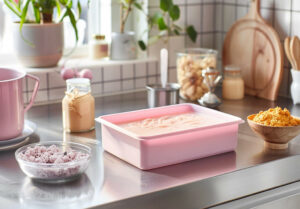
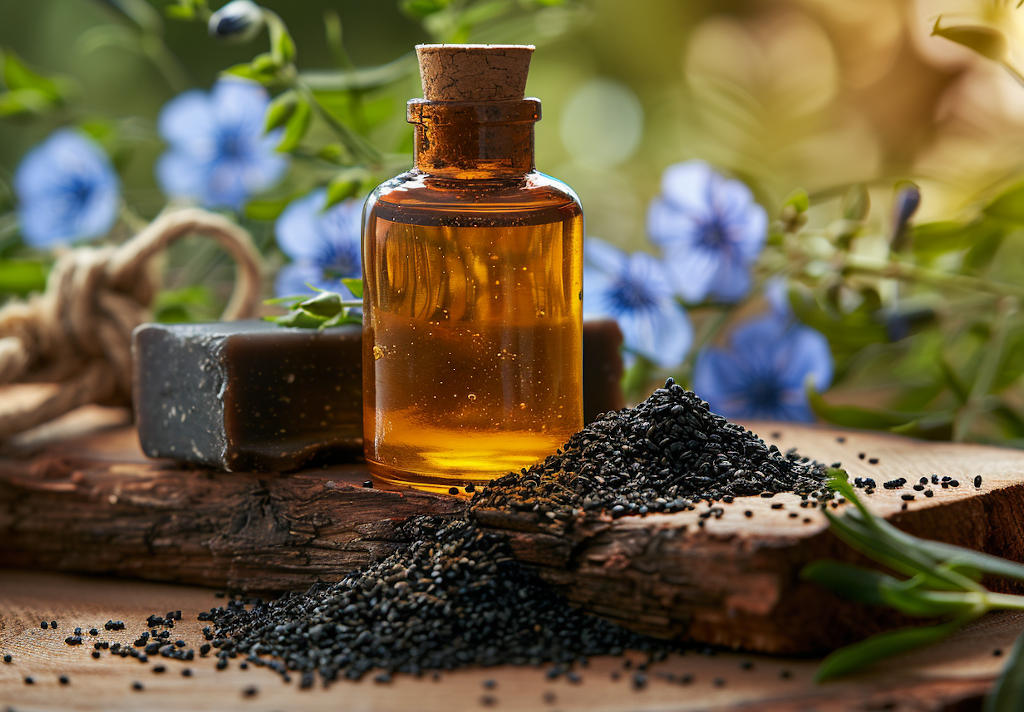
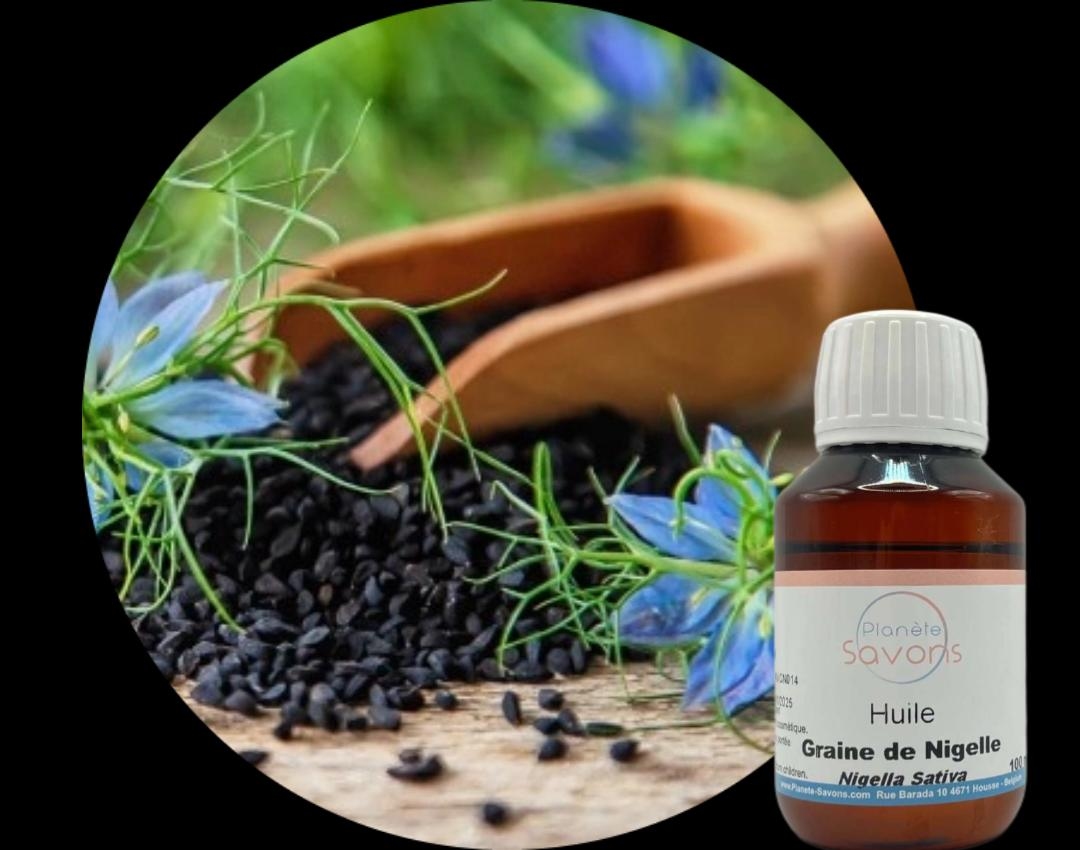
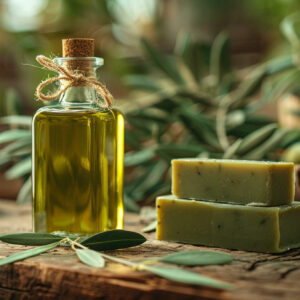

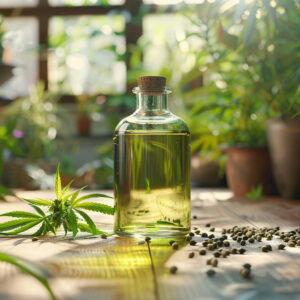
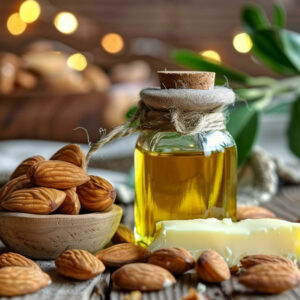
Reviews
There are no reviews yet.